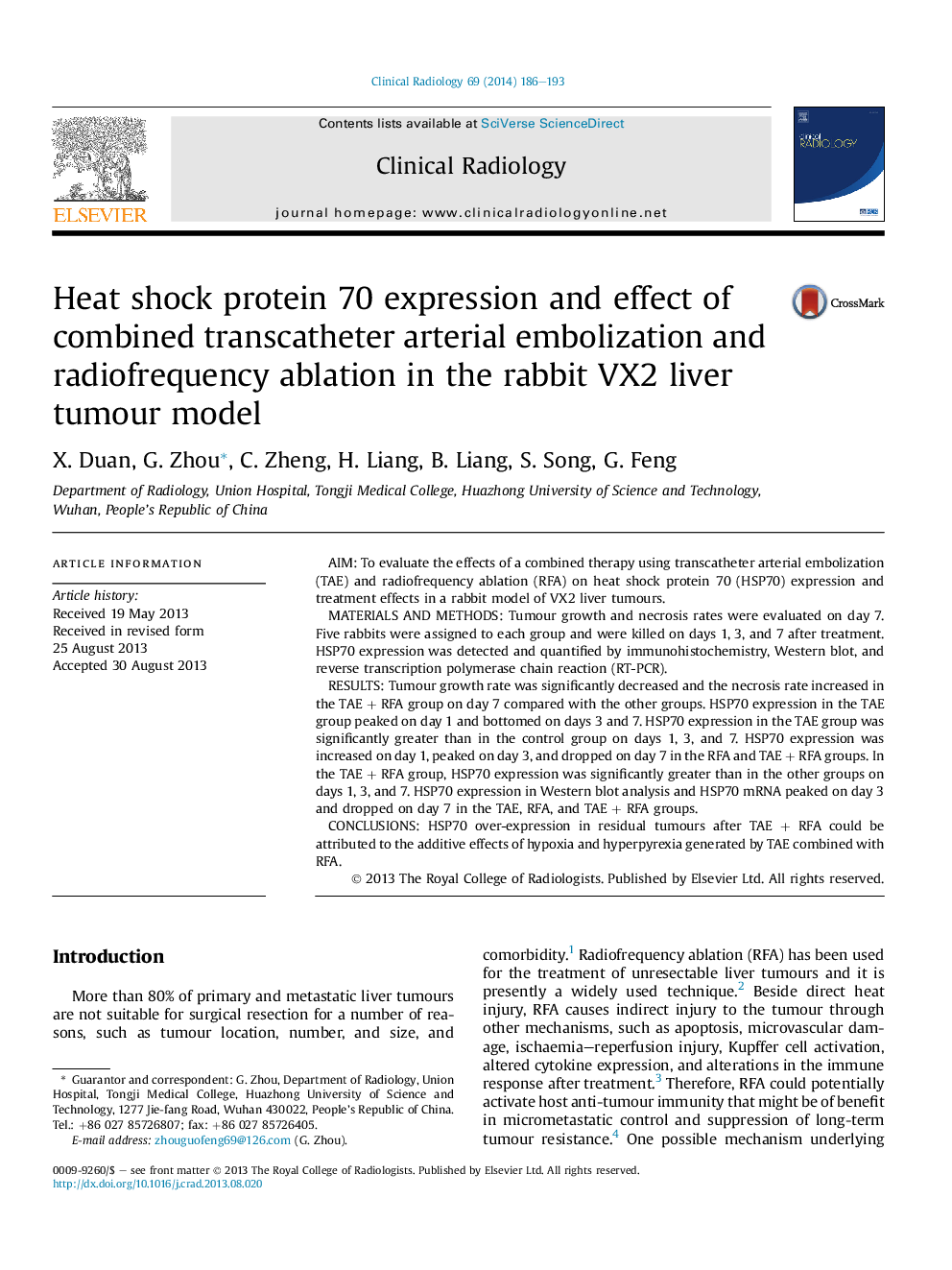| Article ID | Journal | Published Year | Pages | File Type |
|---|---|---|---|---|
| 3981481 | Clinical Radiology | 2014 | 8 Pages |
AimTo evaluate the effects of a combined therapy using transcatheter arterial embolization (TAE) and radiofrequency ablation (RFA) on heat shock protein 70 (HSP70) expression and treatment effects in a rabbit model of VX2 liver tumours.Materials and methodsTumour growth and necrosis rates were evaluated on day 7. Five rabbits were assigned to each group and were killed on days 1, 3, and 7 after treatment. HSP70 expression was detected and quantified by immunohistochemistry, Western blot, and reverse transcription polymerase chain reaction (RT-PCR).ResultsTumour growth rate was significantly decreased and the necrosis rate increased in the TAE + RFA group on day 7 compared with the other groups. HSP70 expression in the TAE group peaked on day 1 and bottomed on days 3 and 7. HSP70 expression in the TAE group was significantly greater than in the control group on days 1, 3, and 7. HSP70 expression was increased on day 1, peaked on day 3, and dropped on day 7 in the RFA and TAE + RFA groups. In the TAE + RFA group, HSP70 expression was significantly greater than in the other groups on days 1, 3, and 7. HSP70 expression in Western blot analysis and HSP70 mRNA peaked on day 3 and dropped on day 7 in the TAE, RFA, and TAE + RFA groups.ConclusionsHSP70 over-expression in residual tumours after TAE + RFA could be attributed to the additive effects of hypoxia and hyperpyrexia generated by TAE combined with RFA.
